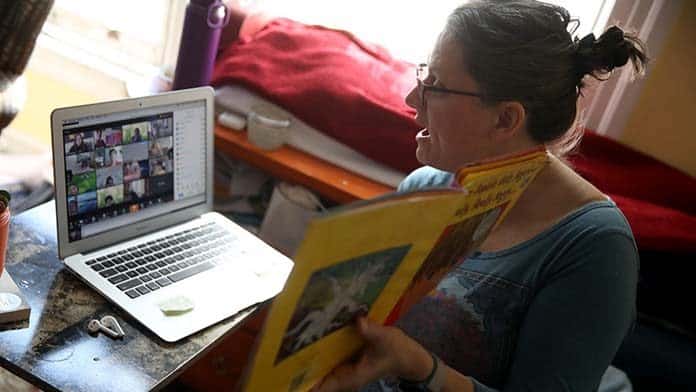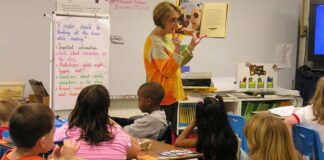There is an intense discussion underway as state governments move to re-open schools, with most states looking to have schools fully open in third term. But there can be no talk of a return to “normal”. As with so many other aspects of society, the COVID-19 crisis has exposed the existing inequalities in education.
Along with questions of teachers, staff, and students being safe in the school environment, the long-standing issues of class sizes, private-public funding, resources, testing, and “autonomy” have to be urgently addressed. Teachers, parents and students need the teacher unions to be at the forefront of the fight to seize this opportunity to redress the burning issues as a result of years of attacks on public education.
The hesitancy and suspicions that many teachers have about returning to work is directly related to the years of neglect that has been inflicted on them and public education. Teachers have already been carrying the burden of an under-resourced education system.
In these circumstances, it is inexplicable that the NSW Teachers Federation has signed an extension of the existing staffing agreement with the NSW Liberal government, when staffing and class sizes are central to establishing safe schools as well as being central to the education we need “on the other side”.
State and federal governments have shown their absolute disregard for educators, students, and their families during the COVID-19 crisis.
Through the shift to remote learning and now the plan for a return to school, teachers’ concerns have not been listened to, nor have the resources been provided that the education system desperately needs. Instead, haphazard and poorly resourced policies have intensified the pre-existing gross inequities and issues within the Australian school systems.
Workload has long been an issue for teachers and for many it has now increased further under the shift to remote learning. An Australian Education Union (AEU) submission to a House of Representatives committee last year—prior to COVID-19—stated that nearly 92 per cent of teachers are concerned they do not have enough time for lesson planning, marking, report writing and administrative tasks.
Remote learning workload
During the shift to remote learning, teachers were expected to change whole units of study overnight to make them compatible with remote learning. Teachers had to learn how to use online tools, create worksheets to mail out, and find new strategies to engage students through remote learning; all while continuing to teach in the most demanding of circumstances.
Administrative tasks have also increased. Teachers are expected to teach those students engaged in the online learning, while also following up the many students who have not logged in or completed work. Teachers who are parents are having to do these tasks while supervising their own children’s learning at home.
Another issue is the unequal access to technology. Students were sent home to begin remote learning without any guarantee of access to a device and internet. Private school students, however, were already well equipped to make the shift to remote learning, with technology a normal part of their school days. Even under normal circumstances, public school access to technology is patchy at best.
At a time when the economic crisis is worsening, the burden of providing these resources has now further fallen on families and under-resourced schools. The government should be ensuring every student has a device and internet to complete their schoolwork remotely.
The most recent report commissioned by the Federal Education Department reveals around 50 per cent of students may be adversely affected by the nation’s shift to remote learning.
The smaller class sizes being negotiated for the safe re-opening of schools must be part of rectifying inequity and workload issues and establishing smaller class sizes post COVID-19. This would mean less administrative work for teachers and would allow for more focused teaching for those students who have been left behind.
An end to standardised tests would provide teachers with more class time, reduce student stress, and limit some of the inequities between schools that have grown with the NAPLAN-associated MySchool website. The cancellation of NAPLAN this year due to COVID-19 was a welcome reprieve. But permanently scrapping the test should be an essential demand of any return to work.
Similarly, end-of-high-school exam results are already mostly a reflection of socio-economic status. A 2016 Fairfax analysis of HSC results showed a direct correlation between results and postcodes. This year’s HSC results will be even further skewed in favour of private school students, who in NSW are set to return to school earlier than their public school counterparts.
Rather than exploring the options to support teachers and students during and post COVID-19, the NSW and QLD tate governments have instead flagged freezing teacher and other public sector workers’ wages.
In NSW, the government have also announced a return to school policy that will be a logistical nightmare. Students are meant to attend school one day a week from 11 May, but again the burden will fall on teachers who potentially could be left juggling face-to-face teaching while trying to ensure equitable remote learning for those students not attending.
Teachers and our unions need to be organising now and preparing the fightback. The willingness of the government to spend money in this time of crisis shows it can find the funds when it chooses.
Teachers and support staff deserve higher wages that recognise the work we do. We need smaller class sizes, an end to standardised tests, and a redistribution of public funds away from private schools to public schools.
Winning these demands would go some way to reducing the long existing inequities and workload issues that have been exacerbated by the shift to remote learning.
COVID-19 has exposed the importance of teachers’ labour and the fundamental inequalities that have festered within the school system for too long. Teachers are now in a more powerful position. It is time we leveraged that power to change the education system for the better.
By a NSW teacher activist






